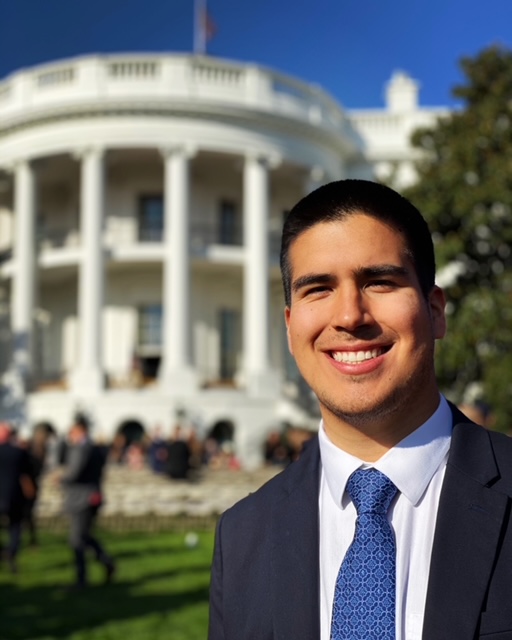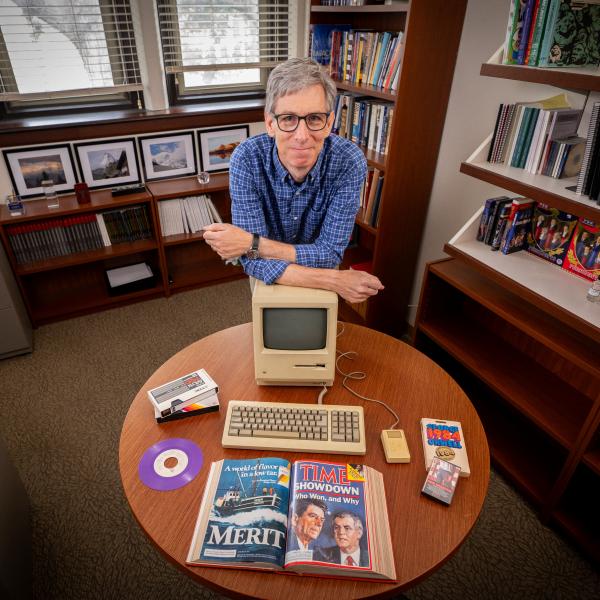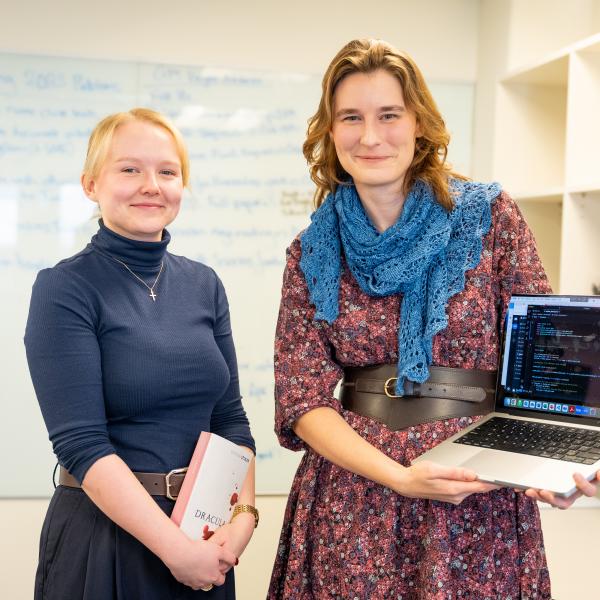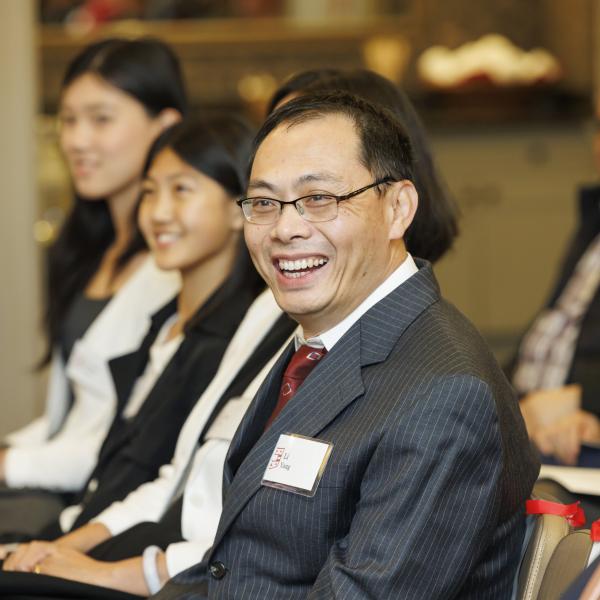History and political science alumnus Juan Varela, AB ’19, reflects on his experience as a Senate staffer during the Jan. 6 insurrection.

Juan Varela, AB ’19, never thought he would stand on the floor of the Senate chambers. As special assistant to Sen. Tim Scott, a Republican from South Carolina, Varela spends a lot of time in the Capitol, but only senators are typically allowed on the floor.
The morning of Jan. 6, Varela picked Scott up at the airport and dropped him off at the Senate chambers. The vote to certify the results of the 2020 presidential election was later that afternoon. On their drive in, Varela noticed many pro-Trump protesters wearing daypacks and dressed in military gear.
Within the Capitol, he could hear people chanting outside. A large crowd had gathered on the west side of the building. Around 2 p.m., Varela noticed skirmishes starting outside the barricades that Capitol police had erected around the building. Standing outside the majority leader’s office, he saw thousands of people, flags flying everywhere. A few policemen were lying on the steps, injured. By 2:15 p.m., police officers had begun retreating into the building.
Officers directed Varela and about 30 other staffers into the president’s lobby, an area outside of the Senate chambers where senators take phone calls when official business is being conducted.
“No one goes onto the Senate floor,” Varela said, “and all of sudden we burst in there, and senators have no idea what’s going on. I’m hyperventilating. Senators start calling their families, and I call the chief of staff and then my mother. The chief of staff tells me to stay with the senator, to let him know that I’m in the room.”
Capitol police eventually evacuated all senators and staffers from the Senate chambers, moving them to a safer location. To Varela, it was clear that he and his colleagues were living through a darkly historical event – an incident on par with many he had studied in history and political science courses at WashU.
“As a history major, I thought back to the 1920s, when Hitler tried to overthrow the German government and when Lenin first tried to overthrow the Tsarist government. Their first attempts didn’t succeed, but they ultimately overthrew their governments.”
Varela originally came to Washington University as a pre-med student. After watching the rise of populist candidates in the 2016 presidential election, however, he wanted to understand how people select candidates to support. He changed his course of study to double-major in political science and history. After a few summers spent interning on Capitol Hill, he landed a post-college job as political assistant to AIPAC's national political director.
At WashU, Varela studied insurrectionist movements throughout history. Now, as he goes back to work with increased security, he’s reminded of Jan. 6 every day. What worries him, he says, is knowing that attempts to overthrow a government often fail on the first try.
“As a history major, I thought back to the 1920s, when Hitler tried to overthrow the German government and when Lenin first tried to overthrow the Tsarist government. Their first attempts didn’t succeed, but they ultimately overthrew their governments,” Varela said. “I worry that the events of January 6 are going to be a powder keg. They didn’t succeed in their mission to keep Trump as a president, but I worry about how dangerous that can be for future attempts to incite armed rebellion against Washington.”
For Varela, returning to a normal routine has been a struggle. When he reflects on the Capitol insurrection, he says that what most shocks him is how quickly national attention has shifted away from an event that, to him and everyone else in that building, felt so traumatic.
“There were around 95 senators in that room along with 40 staff. We were in lockdown for about five hours,” Varela said. “At the time, I kept thinking that this was something that will go down as a 9/11 event. What we’re seeing now is that it won’t – because half the country has moved on.”




